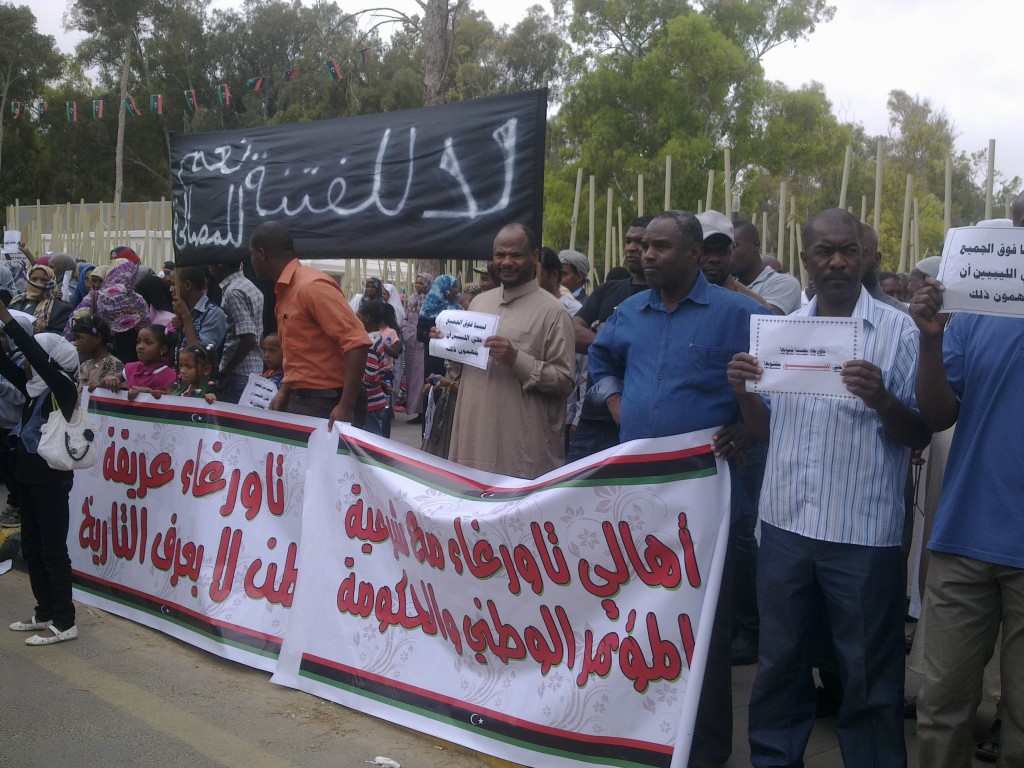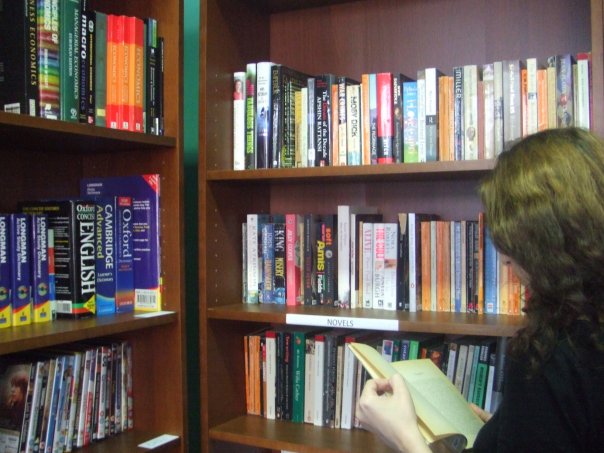By Ahmed Elumami.

Tripoli, 19 May 2013:
A drive-by shooting at the end of today’s peaceful protest staged by people from Tawergha in . . .[restrict]front of the General National Congress (GNC) left one man wounded in the leg.
The victim, a young man, did not sustain any serious injury. “I’m okay, it’s just a minor injury and I haven’t been to hospital,” he told the Libya Herald. No-one else was injured.
The shots came from a car that sped past the protest, which was already starting to disperse. The incident happened so quickly that GNC security were not able to pursue the vehicle. The road was apparently completely empty and the car was driving very fast.
The spokesman for the Tawergha refugee camp in Tripoli, Ali Arrous, claimed that Misratans were behind the attack.
”This is not the first time that Tawerghans have been attacked by Misratans during protests in front of the headquarters of the highest authority of the country,” complained Arrous .
Hundreds of people were at today’s protest, which demanded that the GNC issue a resolution to allow Tawerghans return to their hometown.
The protesters, who included the elderly, women and children, said they have already chosen 25 June as the date of their return. They said they will go back peacefully.
One protestor, physio-therapist Haithm Mashry who works at the Tawergha refugee camp on Tripoli’s Airport Road, explained that the date does not have any kind of political significance. He added, however, that by the 25 June, Taweghan students will have finished their examinations. “We did not want to obstruct students,” he explained.
Some of the protesters were very angry, and others prevented the Libya Herald from taking photos. They said that they were still targets for Misratans.
”The word ‘Tawergha’ itself is considered to be a crime for some people,” said an old man who was very upset with both the GNC and the government. He added that there was a hidden enmity inside the hearts of people from Misrata. Some Tawerghans said that Misratans used the 17 February Revolution to claim Tawerghan land, which they think is theirs.
“We do not have any media to express ourselves except Facebook,” one protester said, stressing that in his view the Libyan media is not free.
On the subject of the mass grave unearthed a week ago, Abdulrouf Hmali said that the bodies belong to Tawerghans not to Misratans. One of then, he said, was a former regime soldier from the town of Ben Jawad.
Several of the Tawerghans hesitated when asked why some of the bodies in the grave were found handcuffed. One suggested that Misratans may have come back to Tawergha after it had been evacuated, exhumed the bodies and handcuffed them to accuse Tawerghans of criminal acts.
A spokesman for the United Nations refugee agency UNHCR told the Libya Herald that his mission believes the return of internally displaced populations should be voluntary and should take place in conditions of safety and dignity. In some instances, he said, such as in the case of Libya, a process combining transitional justice, dialogue and reconciliation was needed to pave the way for a safe and dignified return.
He said it was the responsibility of the Libyan government to seek durable solutions to the problem of displacement in Libya. UNHCR, he said, stood ready to lend its expertise to this process.
UNHCR will continue to provide practical help to displaced populations in Libya, in close coordination with The Libyan Humanitarian Relief Agency, the spokesman added.
At today’s press conference, Prime Minister Ali Zeidan said that Tawerghans had the right to return to their homeland, but added that, because of the circumstances, they should wait until a solution satisfying all parties had been reached.
Zeidan added that the government remained in touch with people from both Twerghan and Misrata. This issue required a lot of patience and wisdom, he said, and only time will solve it. [/restrict]








